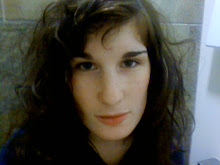I want to approach this reading from the networking standpoint. The existence of the Internet has made possible many new ways to create. The existence of collaborative projects such as Wikipedia are challenging “the concept of the 'author' as it was defined by the book culture.” Someone who is reading Wikipedia can also become a writer. For example, I once was perusing the wiki page on American ex-patriots and noticed that Nina Simone was missing from a section devoted to musicians who expatriated to France in the sixties, so I added her. In a way, this type of format liberates the reader and the writer, but the writer who does not want their text to be altered or deleted might have a hard time embracing this type of online collaboration. It is interesting to browse wiki pages of current issues, for example if you go to the wiki page of Roman Polanski the top of the page will tell you something like this: “This biographical article needs additional citations for verification. Please help by adding reliable sources. Contentious material about living persons that is unsourced or poorly sourced must be removed immediately, especially if potentially libelous or harmful. (April 2009)” It is always interesting to me how Wikipedia is maligned as a resource because of the collaborative format and the fact that people do not have to have any kind of academic credentials to participate. Not that I think Wikipedia is the best source to use, but plenty of people have no problem citing the Bible as evidence for a specific argument, when there are theories that argue certain sections of the Bible may have been written collaboratively by a group of scholars.
Posting work on my own blog and reading the works of others online does shift my sense of texts and the way we judge them. The Internet has updated worldwide collaborative art projects from the mail art that emerged in the fifties as part of the Dada and Fluxus movements to participatory online websites where people can take directions from a website, create, and then post their completed work. This has given birth to many beautiful and human projects such as Learning to Love You More and The Six Word Memoir Project, among many others. The former, resulting in a number of exhibitions around the world and a book of some of the most beloved pieces, and the latter resulting in a number of books with different themes that became best-sellers. So, some of these networking projects actually cross-over into the “book culture,” which is maybe a sign that we are finding ways to navigate the old media and the new media without creating a false dichotomy or limiting the potential of each, but combining them. For example, the Six Word Memoir project functions great as an online site in that people can register, and submit six-word memoirs as frequently or infrequently as they want and be able to see the submissions of the others participating in the project. The individual memoirs work phenomenally in a book form, however, because the various typographical choices the memoirs are presented with can have a very substantial effect on the meaning a reader takes away from such a short description of a life. Additionally, there are networking organizations such as The Yes Men who execute missions and that challenge the people who discover them to copy/edit/recreate in some way the missions the Yes Men have successfully pulled off, in a kind of performance art that creates countless collaborative, nameless, genderless, faceless political acts, with their projects moving "off the screen and into the streets."
That having been said, I want to add that the possibilities networking creates for collaborative art and global action is really one of few positives in my overall evaluation of technology and digital culture. I miss pay phones and cursive handwriting and mix tapes. I wish people still listened to whole albums instead of snippets of songs, I wish people bought books from their local book stores and bought music from their local record stores, and I wish a new stylus didn't cost as much as a whole new turntable. Though networking can result in neat, collaborative art projects, the internet and networking specifically have also had a devastating impact on the music industry via file sharing, and technologies like the Kindle are seemingly the new way to read...texts. I won't call it reading a book because it isn't. There is something very important about books, they are sensual, intimate things, so intimate that we take them to bed with us. Or, at least, I still do. Reading is different on a screen versus in a book. I have started printing out the readings for this class because I stare at a computer all day at work and reading on one all night really makes it hard for my eyes to focus and that tab to the right of the one I am reading in is always whispering "faaaaaaceboookkkk, faaaaceeeeboookkkk" and I really just don't think the computer screen is an ideal reading environment for these reasons. The internet breeds hyperactivity for me, and in many cases useless forms of it. I need to have the pages in my hands; I need to touch them, write on them, interact with them.

No comments:
Post a Comment